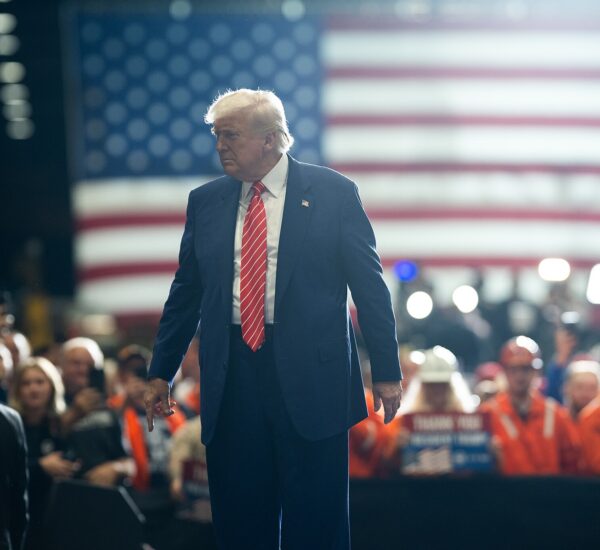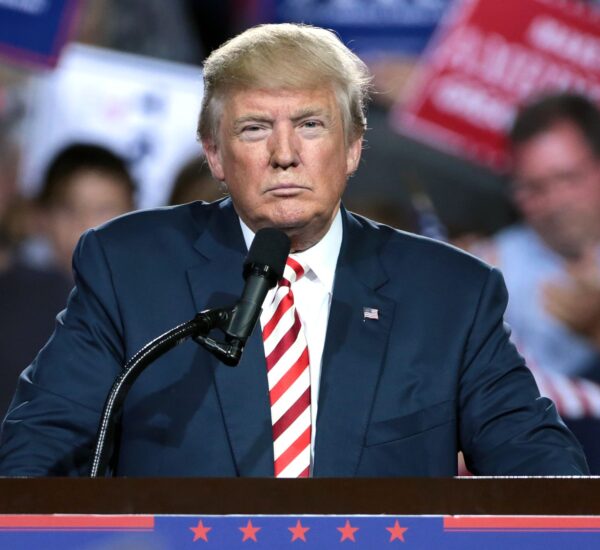Trump Attacks Media Giant
At a recent economic forum in Chicago, former President Donald Trump engaged in a heated exchange with Bloomberg News editor-in-chief John Micklethwait regarding the impact of his proposed tariff policies during a potential second term. Trump has been vocal about his belief that implementing tariffs would yield positive results for the U.S. economy, a stance that Micklethwait challenged repeatedly.
Micklethwait pressed Trump on his intention to impose a universal tariff on imports, warning that such actions could effectively sever trade ties with China and impose at least a 10% tariff on goods from European nations. He emphasized that this would significantly affect the U.S. economy, given that around 40 million American jobs are dependent on trade. “That will seriously impact the overall economy,” Micklethwait argued.
In response, Trump maintained that the tariffs would have a “massive positive effect,” asserting, “It must be hard for you to spend 25 years talking about tariffs as negative and then have somebody explain to you that you’re totally wrong.” This exchange highlights the stark divide between Trump’s approach and traditional economic viewpoints.
Micklethwait raised concerns that Trump’s tariff strategy could be interpreted as a national sales tax, potentially impacting $3 trillion worth of imports and leading to higher prices for consumers. Trump countered, asserting his confidence in his economic calculations and arguing that higher tariffs would incentivize foreign companies to establish manufacturing plants in the U.S.
The discussion took a turn when Micklethwait addressed the foreign policy implications of Trump’s tariff proposals, suggesting that such measures could alienate allies. “How does it help you take on China if you’re turning all your allies against you?” he asked. Trump replied confidently, “Tremendously, because China thinks we’re a stupid country. They can’t believe somebody finally got wise to them.”
Throughout his presidency, Trump has framed tariffs as a multi-faceted solution—not just for addressing trade deficits but also for lowering consumer costs and promoting domestic manufacturing. While he argues that tariffs can lead to lower costs, economists often warn that they could increase expenses for consumers and exacerbate inflation. Critics question whether the revenue generated from tariffs would be sufficient to address the national deficit.
This forum marked a significant moment for Trump, who has predominantly engaged with conservative media in recent weeks. His willingness to confront challenging questions from a mainstream outlet underscores the ongoing debate about the economic strategies that could shape America’s future. For Republicans, the discussion around tariffs remains a crucial topic as the party looks to balance domestic manufacturing support with broader economic realities.





